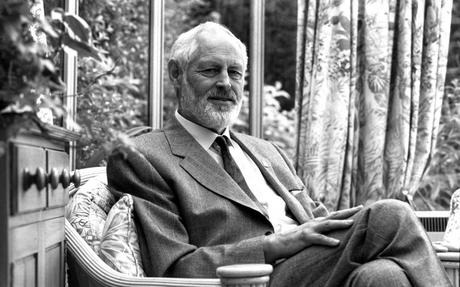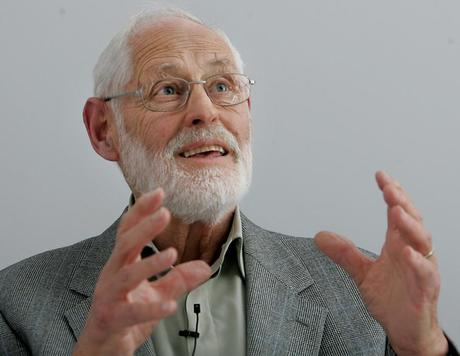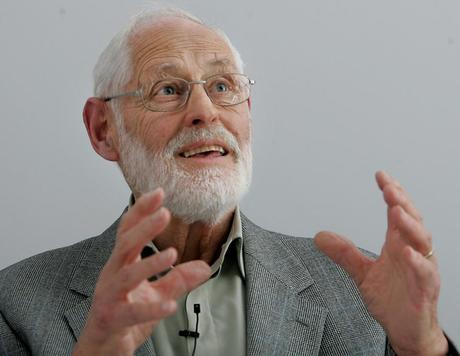
Ivor Browne, who has died aged 94, was a psychiatrist who transformed public perception of mental illness in Ireland, overseeing the shift from overcrowded hospital wards and electroconvulsive therapy to a holistic view of the human mind.
When Browne started his career in the 1960s, mental health care in Ireland was in a parlous state. Proportionally, Ireland had the highest psychiatric hospital incarceration rate in the world - even higher than that of the Soviet Union - and there were on average only two psychiatrists per psychiatric hospital (one per 454 inpatients). Often patients were institutionalized because they were causing trouble for their family or the church. Many stayed there for decades.
Browne wanted to dismantle the system, stating: "We no longer need the mental hospital as we know it." While he agreed that some people would always need long-term residential care, he urged that hospitals be integrated into the community, rather than locked behind walls. He was against the over-prescription of mood-altering drugs and believed that measures such as electroconvulsive therapy should only be attempted when any other form of treatment has been ruled out.
Instead, Browne advocated talk therapy, which aimed to get to the root of mental health problems. In 1985, his article, "Psychological Trauma, or Unexperienced Experience," was published in the Irish Journal of Psychiatry. Here Browne set out his hypothesis that traumatic events cause the psyche to generate an 'unusual state of consciousness' in an act of self-protection. This causes the body to retain trauma, in what Browne called the "frozen present."


Traumatized children can reenact the event in play; adults may experience disturbing dreams, flashbacks, or intense distress when encountering circumstances that reminded them of the past event. "If it's blocked, you don't relive the experience," Browne explained. "You experience it for the first time."
The story continues
Healing could begin once the patient, with the help of a therapist, had processed his or her traumatic experience. It was a common (albeit unpleasant) memory at the time; the patient could still remember it, but it no longer pervaded everyday life. In group workshops, Browne encouraged his patients to lie down while they relived their experiences, allowing them to respond spontaneously to the trauma.
In the introduction to Browne's 2008 book Music and Madness, writer Colm Tóibín recalled crying out loud as the "unexperienced" pain of his father's death finally overwhelmed him. Tóibín became a friend of Browne, while the novelist Sebastian Barry compared Browne to a father figure. 'Then Sebastian and Ali [Alison Deegan, his wife] things weren't going well, we brought them fish and chips," Browne recalled.
Browne was willing to break rules to save lives and earned a reputation as a maverick. His sympathy for his patients and his opposition to many established practices of the last century also put him at odds with some colleagues. In 1996, he spoke out on behalf of Phyllis Hamilton, who had children with famed Catholic priest Father Michael Cleary. He defended her against accusations that she was a liar and a blackmailer, saying on RTE radio that Cleary had always been open with him about the relationship.
For this, Browne was attacked by the Catholic Church and sanctioned by the Medical Council. However, he remained unapologetic, feeling that he had to prioritize his patient's well-being over the Church's reputation. He stayed in touch with Phyllis Hamilton and was with her when she died in 2001.


William Ivory Browne, one of five children, was born in Dublin on March 18, 1929, into a middle-class family. Years later, he learned that his parents, determined not to have any more children, used a form of birth control that his mother followed the rules for. the bedroom door locked. Ivor was conceived after his father climbed in through the window.
Through his father, a former Catholic who defected to the Church of Ireland when he married Browne's mother, Ivor inherited a love of literature, music and history. His mother nurtured his spiritual side.
As a boy, Ivor struggled with dyslexia and did poorly academically, but he loved music and took up the trumpet. After leaving Blackrock College he attended the Royal College of Surgeons where he spent much of his time playing jazz. One professor told him: "You are only suitable to be an obstetrician or a psychiatrist."
In his third year at RCS he contracted tuberculosis, which put an end to his trumpet playing. After graduating in 1955, he began working in neurosurgery, where he assisted in lobotomies as a student (a fact he later deeply regretted). He went on to work at Warneford Hospital in Oxford, before returning to Ireland and St John of God Hospital in Dublin.
It was there that he began to develop skepticism about the use of psychotropic medications when he saw schizophrenic patients being readmitted to hospital months after a so-called 'cure'. "Whatever we did, it was clear to me that we were not changing the process," he recalls.
In 1962 he took a job at St. Brendan's Hospital in Dublin, where he was appalled by the overcrowding and the use of harsh treatments such as insulin coma therapy. He rose to become medical superintendent in 1966 and began setting up group therapies in a disused church on the hospital grounds. His approach included new medications, intensive one-on-one therapy and returning patients to the wider community.
At the same time, he experimented with more radical and controversial therapies, such as the use of LSD and (later) ketamine. He had a lifelong interest in Indian spiritual practices and championed the psychological benefits of yoga and meditation. He presented a manifesto for change in his interview for the position of Chief Psychiatrist of the Eastern Health Board, and was appointed to the position in 1966, eventually retiring in 1994.
Ivor Browne was professor of psychiatry and head of department at University College Dublin from 1967. He also chaired the expert committee on psychiatric reform in Greece and was director of the Irish Foundation for Human Development.
Browne was noticeably tall and had a neat white beard. He had a warm appearance and often greeted people with a hug. He was popular on the jazz scene and founded the Claddagh Records record label with his friend Garech Browne, the heir to Guinness. He was not afraid of dying, believed in reincarnation and once said he felt like he might have been an Italian monk in a past life.
Ivor Browne had four children with his first wife, Orla. The marriage ended in divorce and in 1999 he married his partner of 30 years, June "Juno" Levine. She died in 2008.
Ivor Browne, born March 18, 1929, died January 24, 2024